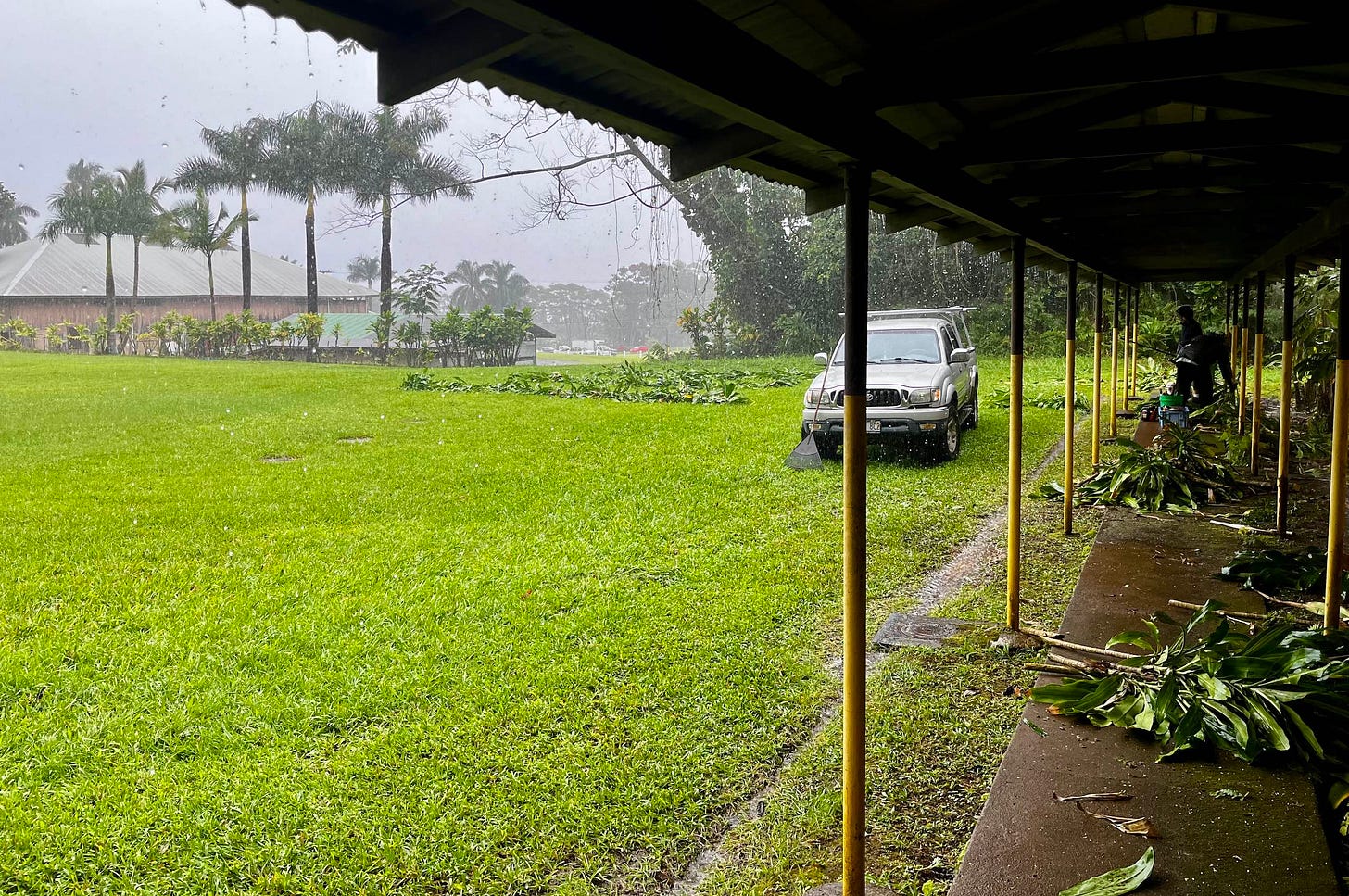#11: Miracles
“Every time we meet, the rain stops.”
Hey friends,
Last Sunday I joined a community event here in Hawaii helping with some yard work. It was raining heavily. The lead is a Buddhist and she brought a buddha statue to the site. The statue was placed on top of the stairs, with incense burning, overlooking us.
One person told me, every time they did this on a rainy day with the lead, the rain always stopped right before they started, and resumed after they left. There must be miracles.
This reminds me of what I was reading this week from Seeking Wisdom.
We believe in miracles because we forgot about those times that are non-eventful. In this case, they don’t remember the times when the rain didn’t stop, or the times it didn’t rain, or the times the rain stopped but they didn’t go.
In Peter Bevelin’s words,
We often pay little or no attention to times when nothing happens. We shouldn’t look at past events and find significance in the amazing ones. We need to make comparison among cases involving no cause or no effect and look at all the other things that might have happened instead.
Our brain loves to make up reasons for events, even when they’re random.
A story is told in A Random Walk Down Wall Street that each year a professor begins her class by asking each student to write down the sequential outcome of a series of one hundred imaginary coin tosses. One student is chosen by the class to flip a real coin. The professor is always able to identify the real coin toss out of the thirty submitted with just one guess. How?
She simply picked the one with the longest consecutive streak of H (heads) or T (tails). HHHHHTTTTT seems to be less random than HTHTHTHTHT, and people tend to write the latter pattern, but they’re both equally likely or unlikely to occur.
Another reason why we love to believe and talk about miracles is that we love stories. Stories are memorable. Stories come with logical chains of causes and effects. We like things that are certain.
But the real world tends to be more complex than we believe. If we want to get closer to truth, we have to think deliberately.
As Nassim Taleb says,
When searching for real truth, favor experimentation over storytelling (data over anecdote), favor experience over history (which can be cherry-picked), and favor clinical knowledge over grand theories.
Have a great week,
Weichen


